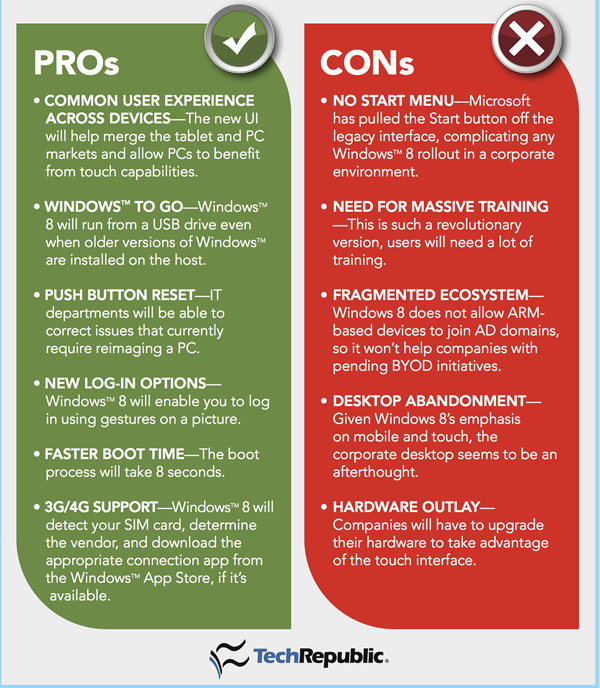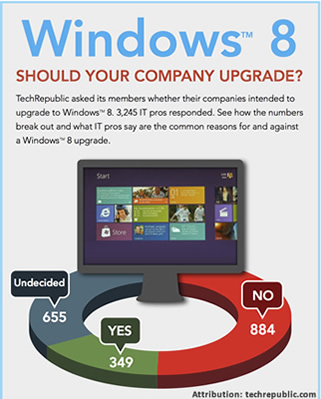With the announcement of Windows 8 reaching its RTM milestone, the final and polished version of the OS has been finding its way to various unauthorized channels of distribution. According to individuals who have managed to procure Microsoft's "latest and greatest" Windows, there have been a handful of changes since its public Release Preview.
It appears the most contentious tweak Microsoft has made since the Release Preview is disabling the ability of users to bypass the Metro Start Screen after boot. The default behavior of Windows 8 has always been to greet users with the Metro Start Screen after logon, but the Start Screen could be bypassed, allowing users to see their classic desktop instead. Early adopters report that this is no longer possible, according to ZDNet.
The method used to bypass the Metro Start Screen after boot has been to effectively create a "Show Desktop" shortcut and place it inside a program loading point like the "Startup" folder. It's unclear from this report exactly how Microsoft may be blocking this method, but it is conceivable that Microsoft has programmatically disabled the "Show Desktop" shell command from the typical executing from the Startup folder, task scheduler and registry loading points.
Hopes for a group object policy to control this startup behavior also appear to be dashed, according to ZDNet's sources. This is particularly troublesome for system admins who were hoping to easily mitigate user confusion by disabling the Start Screen via a simple GPO. And according to TechRepublic, there are quite a few businesses out there who will be disappointed.
TechRepublic released today its results from a survey which polled more than 3,000 of its readers whether or not their business would upgrade to Windows 8 and why.

Amongst the top reasons cited for avoiding Windows 8 included the usual suspects: need for retraining, OS fragmentation and hardware concerns. Interestingly though, the missing Start Menu and "Desktop Abandonment" were also top issues. These of course are novel concerns specific to the direction Windows 8 is taking the dominant franchise.
As for why users should upgrade, those polled liked that Windows 8 brings a more consistent experience across different devices, Push Button Reset, the ability to run directly from a USB drive and offers much faster boot times.
Windows 8 is expected to hit shelves October 26, 2012.
